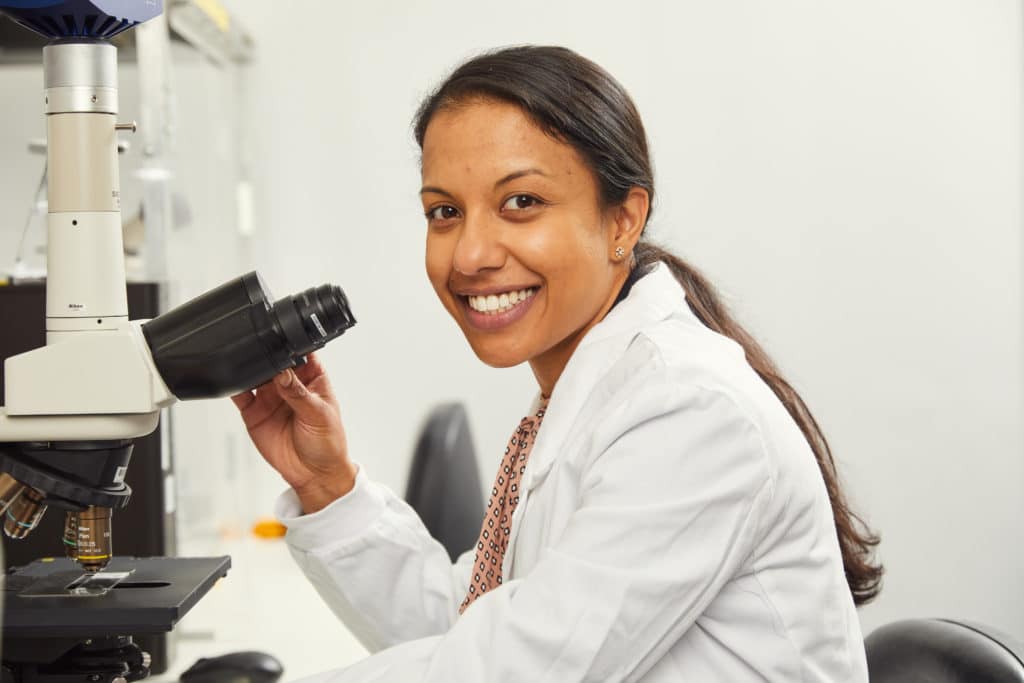- Research
- 2022-2026 Research Strategy
- Open Clinical Trials
- Closed Clinical Trials
- What is a Clinical Trial?
- Why Participate in a Clinical Trial
- Remote Telehealth Pre-Screening Process
- Research Achievements
- Publications
- Research Development and Funding
- Participating Institutions
- International Collaboration
- BCT Trials & Projects Summary
- Translational Research
- Clinical Fellowship Program
- International Fellowship Support
- Annual Scientific Meeting
- Travel Grants and Awards
- About
- Our Impact
- Fundraise
- Donate
- Researcher Login
- Cart
What is the Clinical Fellowship Program
Developing new research ideas and supporting the next generation of researchers is at the heart of the new Clinical Fellowship Program.
The Program is aimed at early career researchers, who have a high-level interest in clinical research and qualifications in the disciplines of medical oncology, pathology, psychology and other supportive care specialities, radiation oncology, radiology or surgery.
Fellows work on projects that are directly relevant to Breast Cancer Trials (BCT) that potentially involve:
- Research areas of future trials including background and pilot work;
- Work on existing or future BCT clinical trials;
- Further analysis of data from existing trials; and
- Participation in trial meetings to drive the research as directed by our strategy.
Six applicants were accepted in the inaugural year with the following research projects:
Dr Anna Sokolova – Developing New Treatments for Invasive Lobular Carcinoma
Invasive Lobular Carcinoma (ILC) is the second most common subtype of breast cancer, with 2,400 new cases each year in Australia. Patients with ILC may have a poorer outcome over time and the cancer has a tendency to metastasize to atypical sites such as the gastrointestinal tract, gynaecological organs or orbit (eye). This research project will examine a new treatment approach directed at ILC.
Click here for more information or to listen to our podcast with Dr Sokolova.
Dr Christine Muttiah – Improving Recruitment to a World-First Trial
The BRCA-P clinical trial is a world-first study that aims to prevent breast cancer in women who carry the BRCA1 gene mutation. Dr Muttiah will assist in the clinical conduct of this study, to enable sites to develop and establish recruitment pathways through familial cancer and risk management clinics.
The project will also provide preliminary interpretation/report on results from translational research sub-studies.
Click here for more information or to listen to our podcast with Dr Muttiah.
Dr Elizabeth Blackley – Developing a Model of Care for Young Women
Young women diagnosed with both early and advanced stage breast cancer face a variety of problems unique to or accentuated by their young age. Young women are often diagnosed at a stage in life when they engage in multiple roles that may not easily be filled by others, including parenting of young children, family planning, completing education and developing careers, and this complexity places both patients and their families under additional stress.
Treatment for breast cancer is often protracted, with aggressive chemotherapy and many years of hormonal therapy, which present higher rates of toxicity in younger women. As a long-term consequence, young women diagnosed with breast cancer can be at a higher risk of physical and psychosocial distress than older women, resulting in a diminished life after their cancer diagnosis.
This study involves the collection of data and the development of a registry on breast cancer incidence, treatment, outcomes and quality of life metrics in young Australian women. This will help form a streamlined model of care for young women and support services, such as genetic counselling, psychosocial supports, rapid fertility specialist consultation, survivorship, premature menopause and sexual health clinics.
Click here for more information or to listen to our podcast with Dr Blackley.
Dr Janice Yeh – Improving Radiation Treatment and Planning in Early Breast Cancer
Radiation therapy after breast conserving surgery plays an important role in the management of early breast cancer, decreasing the risk of breast cancer returning and improving mortality rates.
This research project aims to evaluate the technical feasibility and clinical performance of the novel NASHA gel compared to standard surgical clips as a fiducial marker, to assist in the delineation of post-lumpectomy tumour bed in early breast cancer for radiation therapy planning.
Click here for more information or to listen to our podcast with Dr Yeh.
Ms Michelle Sinclair – Easing the Fear of Breast Cancer Recurrence
Approximately 70% of women experience moderate to high levels of fear of cancer recurrence (FCR) and up to 15% experience severe, disabling FCR characterised by constant, intrusive thoughts about cancer; interpretation of mild, unrelated symptoms as a sign of recurrence; a belief that cancer will return regardless of actual prognosis; and an inability to plan for the future due to cancer worry.
FCR is a routine reason for seeking professional clinical support and is associated with psychological distress, poorer social and occupational functioning, and increased health care costs.
This study will provide useful exploratory data from the PROSPECT clinical trial, about the association between therapy de-escalation by omitting radiation therapy and FCR. It will also examine FCR and quality of life in women with DCIS.
Click here for more information or to listen to our podcast with Ms Michelle Sinclair.
Dr Neshanth Easwaralingam – Reducing Treatment and Potential Side Effects for Patients with Axillary Node Positive Breast Cancer
Patients with axillary node positive breast cancer are often treated with neoadjuvant chemotherapy (treatment before surgery) and conventional axillary dissection. However, many patients experience arm morbidity and reduced quality of life with this approach and new research suggests that less radical surgical strategies may improve patient outcomes.
This study will ascertain the safety and efficacy of targeted axillary dissection (TAD) as an alternative to conventional axillary dissection, in patients who undergo neoadjuvant chemotherapy. It will also collect data on breast cancer patients to help establish a new registry specifically focused on TAD treatment.

